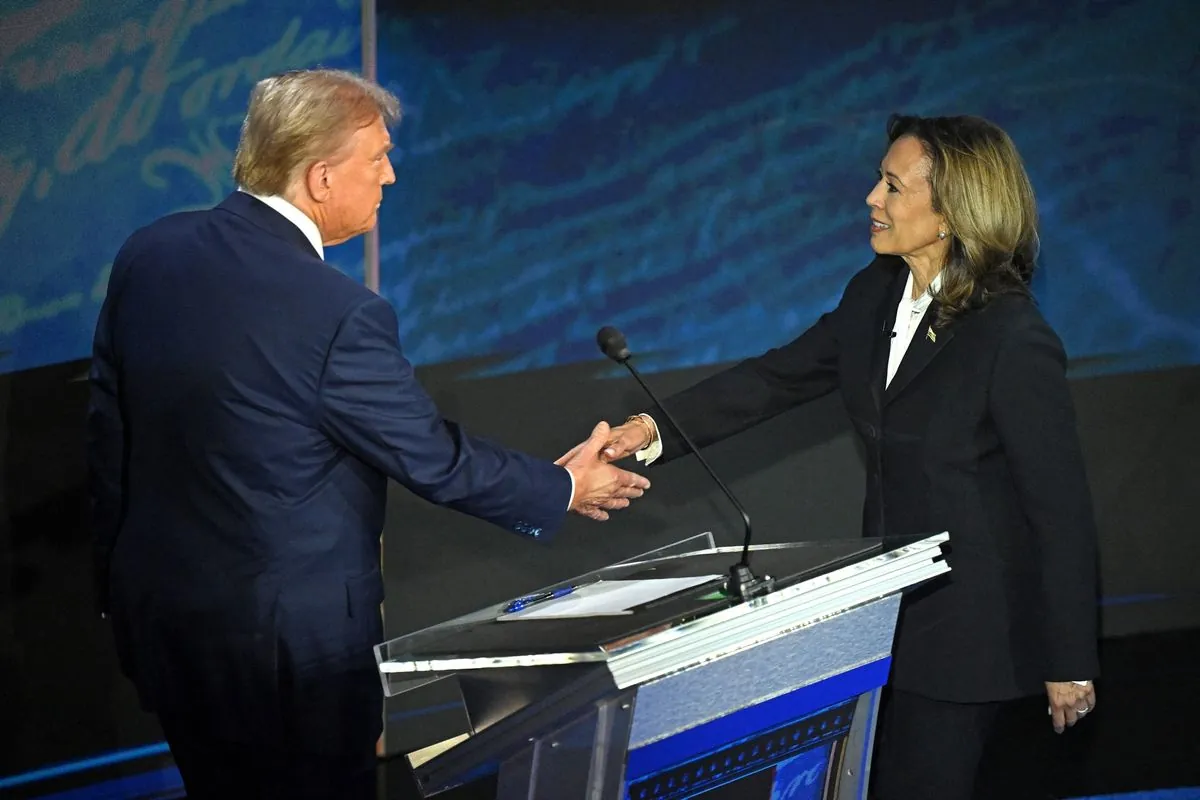The recent presidential debate between Kamala Harris and Donald Trump has highlighted a significant shift in U.S. political discourse, with both candidates demonstrating a reluctance to propose extensive spending plans. This approach marks a departure from the ambitious fiscal policies of the Biden administration, which sought to emulate the bold economic initiatives of Franklin D. Roosevelt's New Deal era.
Joe Biden's presidency, which concluded in early 2024, was characterized by substantial government expenditure. His administration implemented several major spending programs, including the $1.9 trillion American Rescue Plan and the $1.2 trillion Infrastructure Investment and Jobs Act. These initiatives, while addressing critical needs, have contributed to the nation's growing fiscal challenges.
The debate, held on September 10, 2024, revealed a more cautious approach from both candidates. Harris, the Democratic nominee, focused on targeted economic measures aimed at reducing the cost of living. Her proposals include tax incentives for property developers to increase housing supply, a $25,000 credit for first-time homebuyers, and an enhanced $6,000 allowance for new parents in their child's first year. These policies, while potentially beneficial, are notably more limited in scope and cost compared to previous Democratic initiatives.
Trump, representing the Republican party, has been less specific in his economic plans. His primary focus appears to be on extending the tax cuts implemented during his previous term, particularly the Tax Cuts and Jobs Act of 2017. The former president has also suggested imposing high tariffs on foreign goods, potentially up to 20%, as a means to fund various programs. However, economists generally agree that such tariffs often result in higher prices for domestic consumers.
The restrained approach of both candidates reflects the current fiscal reality facing the United States. The national debt surpassed $31 trillion in October 2022, and the budget deficit for the fiscal year 2023 stood at approximately $1.7 trillion. According to projections from the Congressional Budget Office, interest payments on the national debt alone are expected to reach $1 trillion by 2025.
This fiscal situation has effectively limited the options available to presidential candidates. Even if Harris were to win the election, the Democrats would face significant challenges in maintaining control of both chambers of Congress, which is typically necessary for implementing major spending initiatives.
The debate also touched on other pressing issues, including abortion rights, foreign policy in the Middle East, and even unusual topics such as conspiracy theories about Haitian migrants. However, the absence of grand fiscal plans was particularly noteworthy, signaling a potential shift in the political landscape.
As the United States approaches the 2024 election, it's clear that government spending will remain a contentious and challenging issue. With the Federal Reserve targeting an average inflation rate of 2% over time, and the August 2024 consumer inflation rate at 2.5%, economic stability continues to be a primary concern for voters and policymakers alike.
"We're going to extend the tax cuts, and we're going to make sure that America is competitive again. The tariffs will pay for everything."
The upcoming election will likely focus on how candidates propose to address economic challenges within the constraints of the current fiscal environment. As both Harris and Trump navigate these complex issues, voters will be watching closely to see how they balance the need for economic growth with fiscal responsibility.
